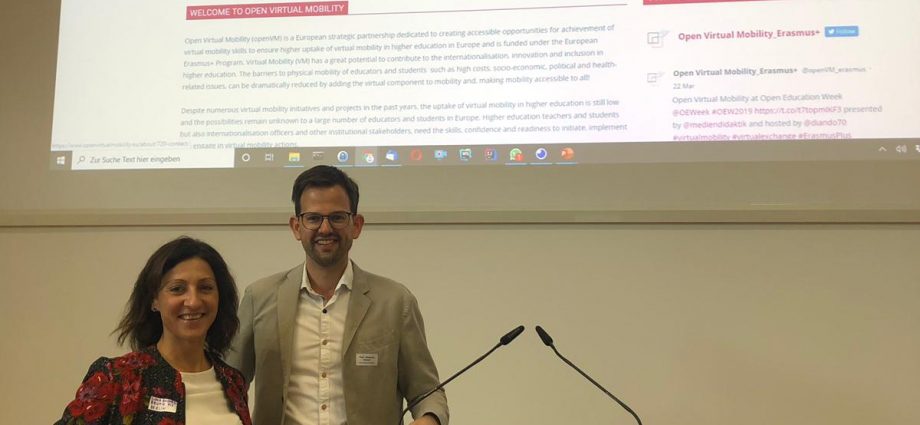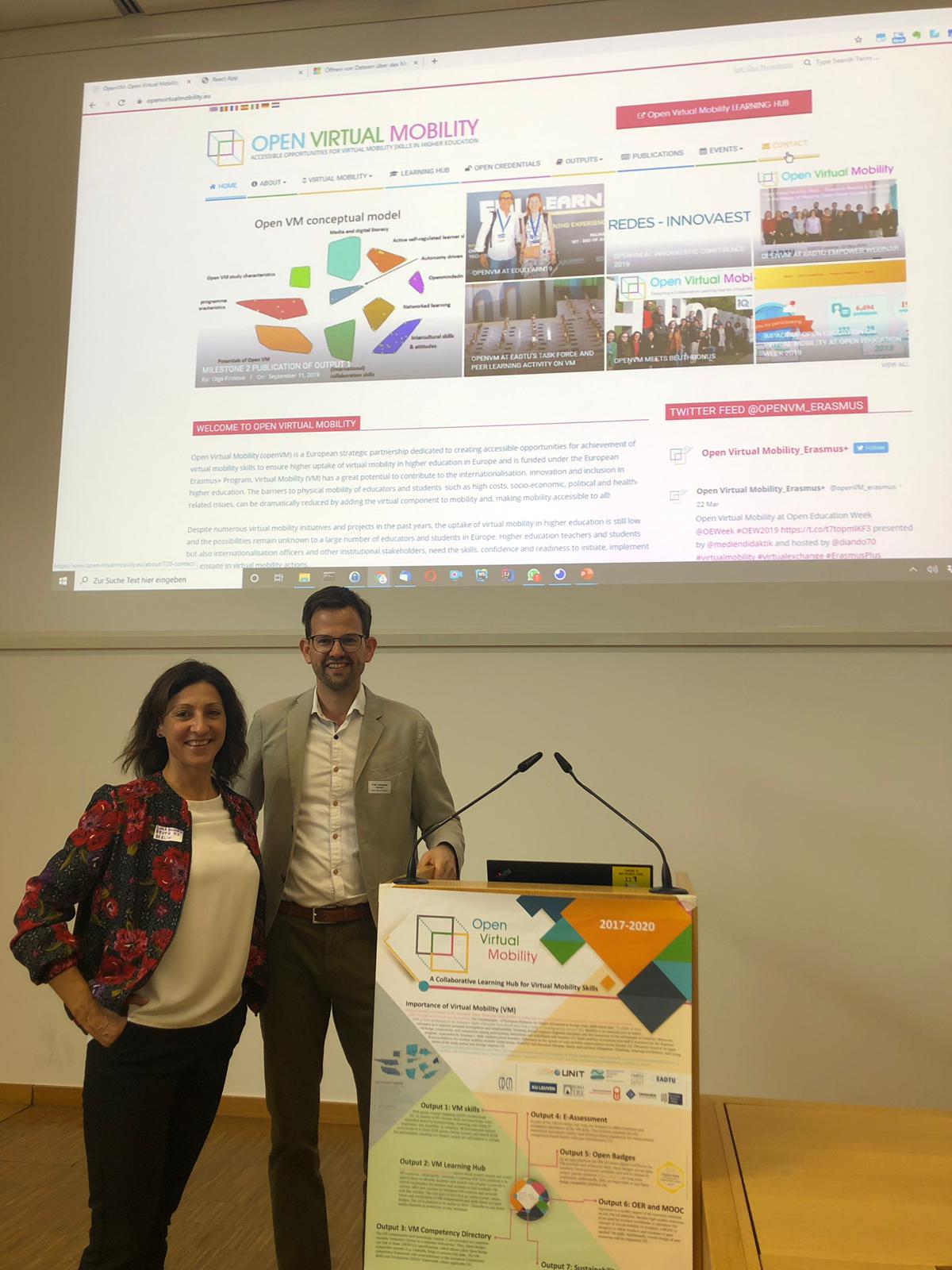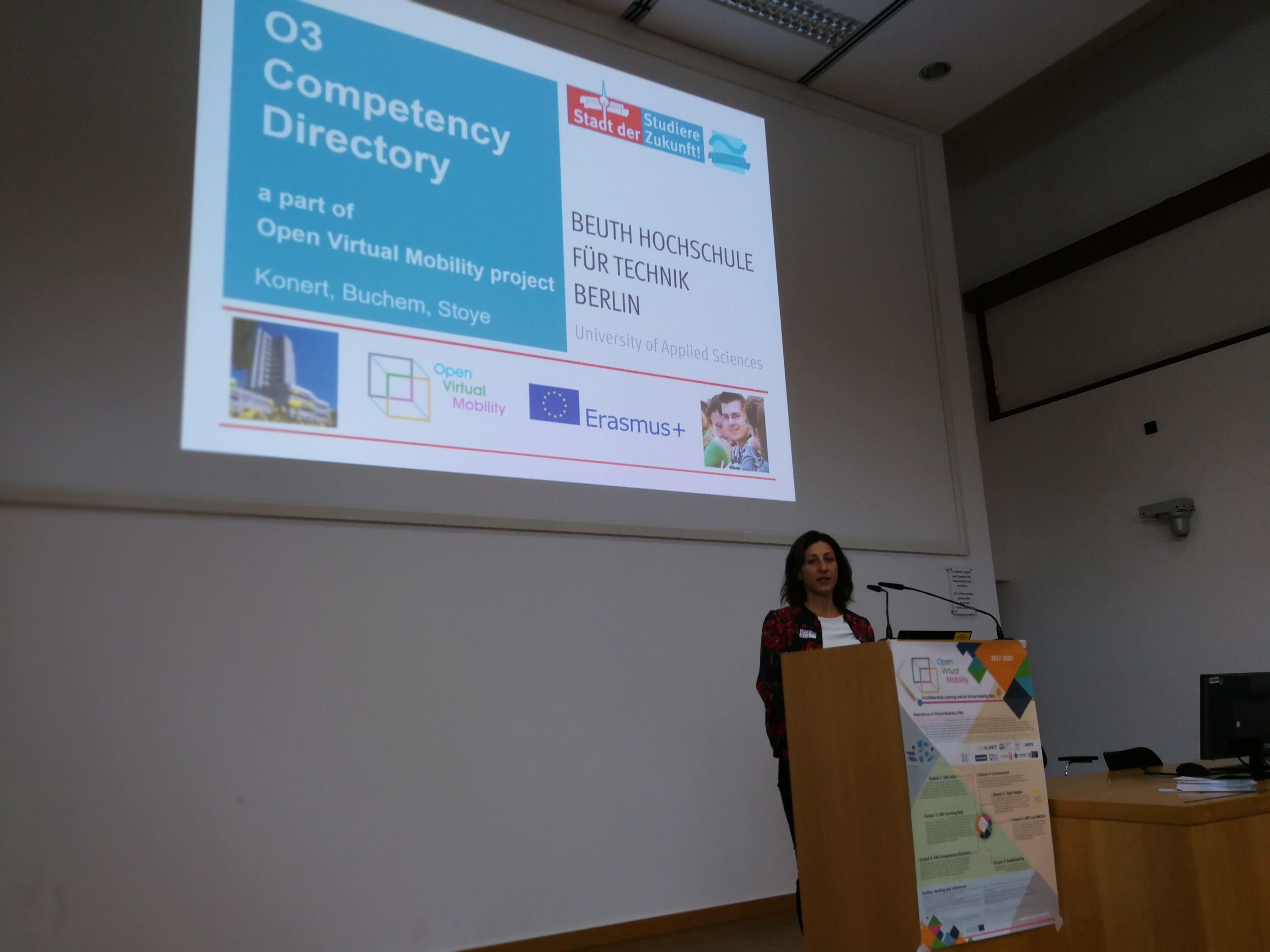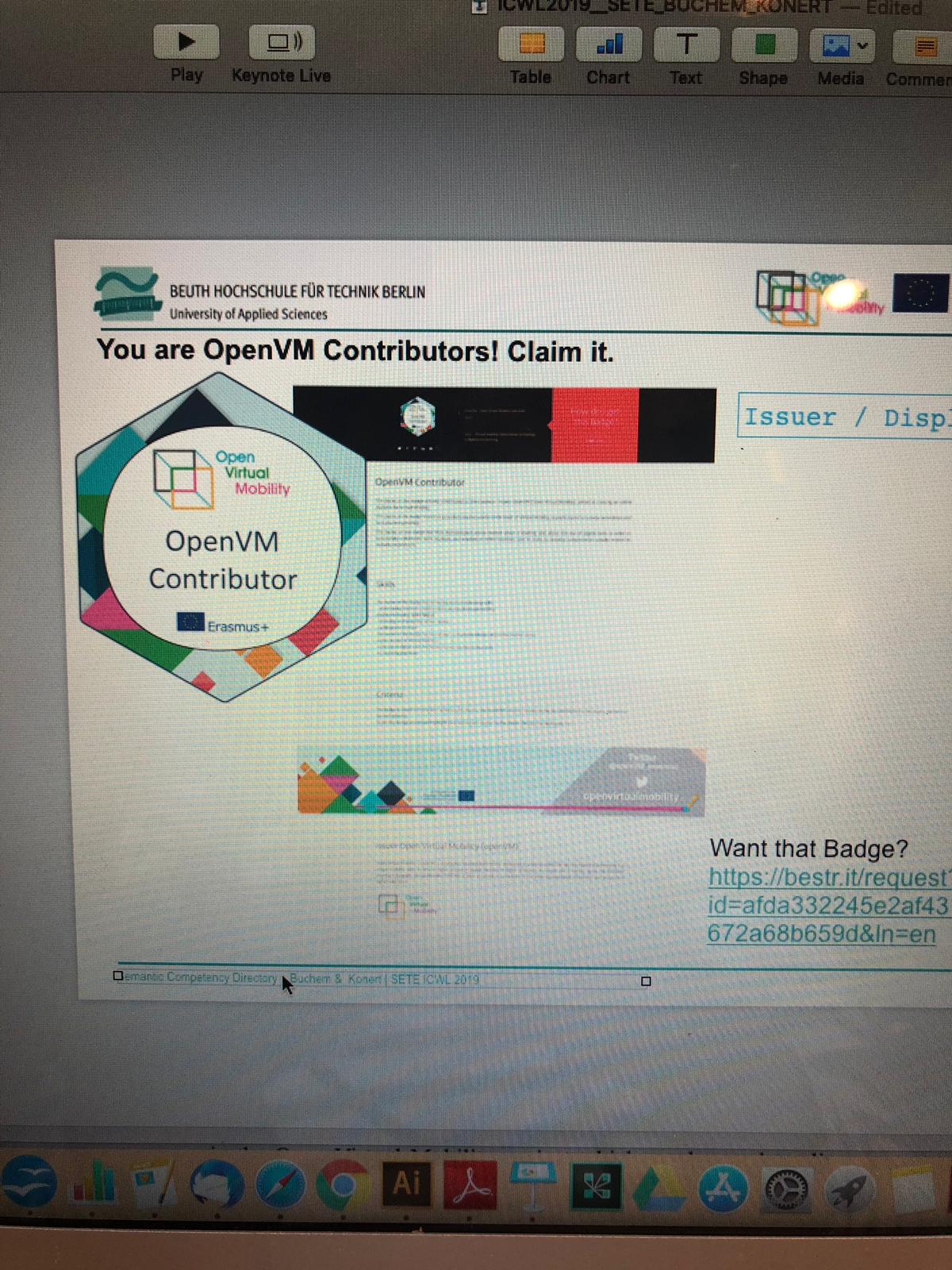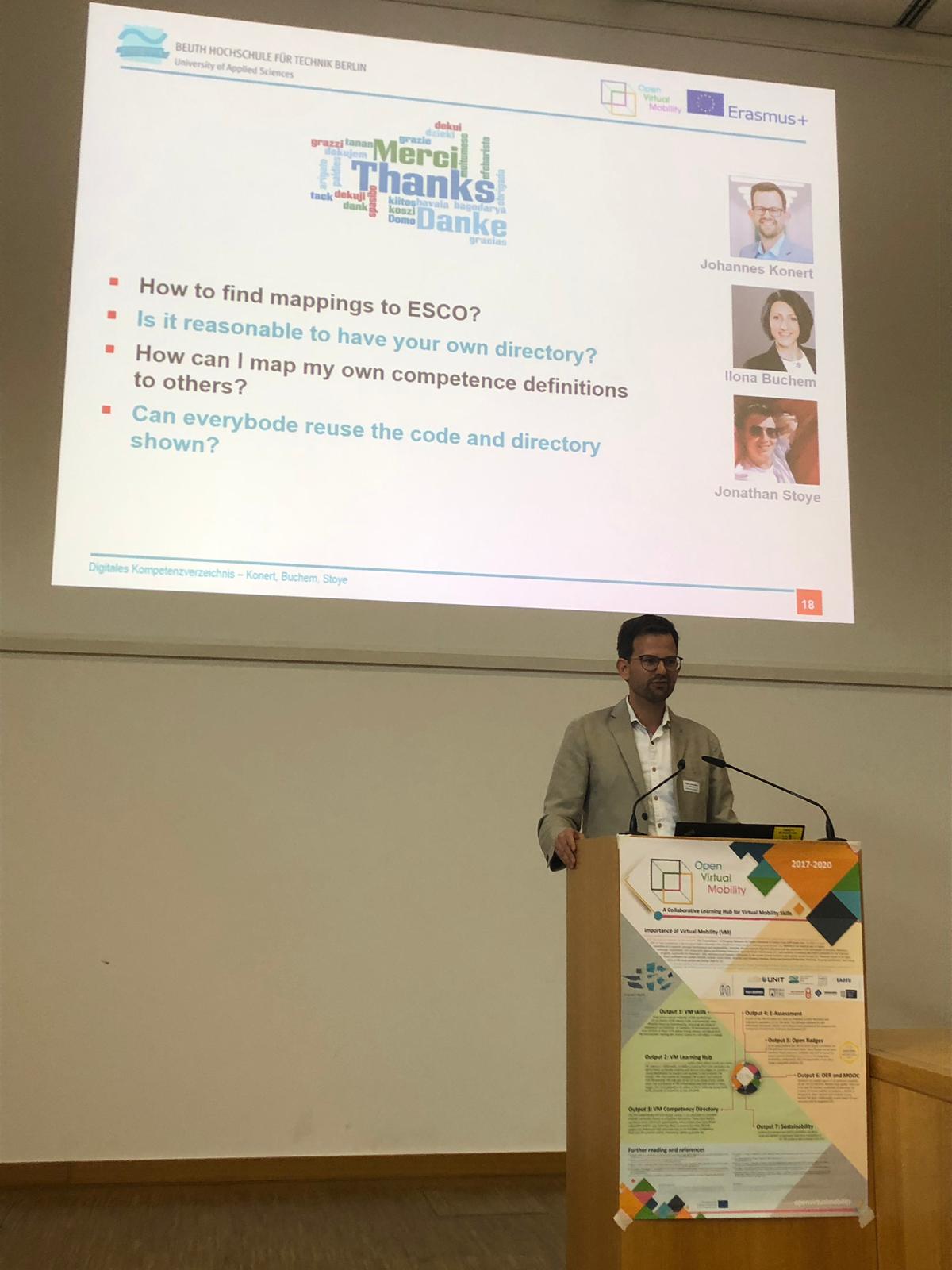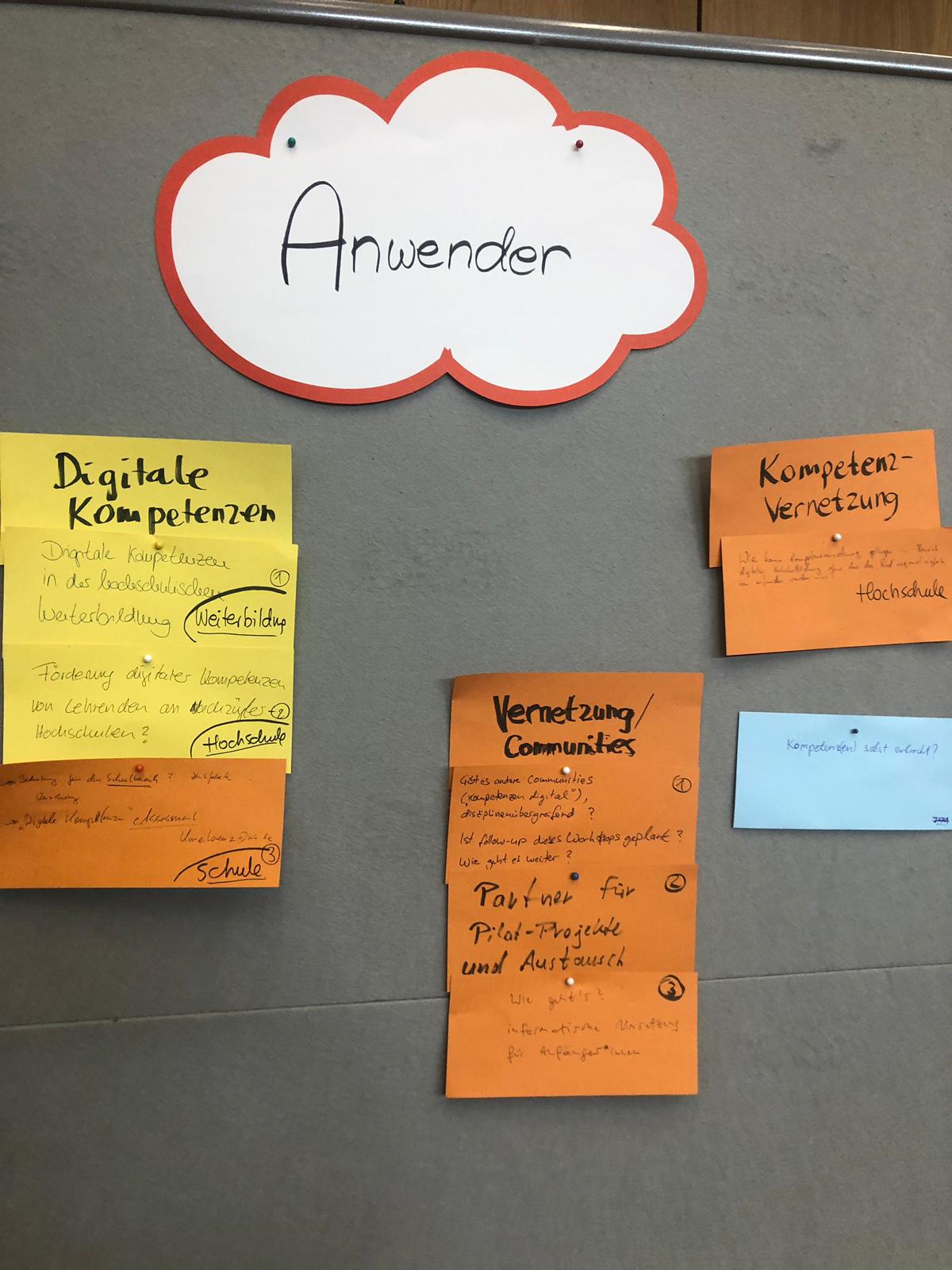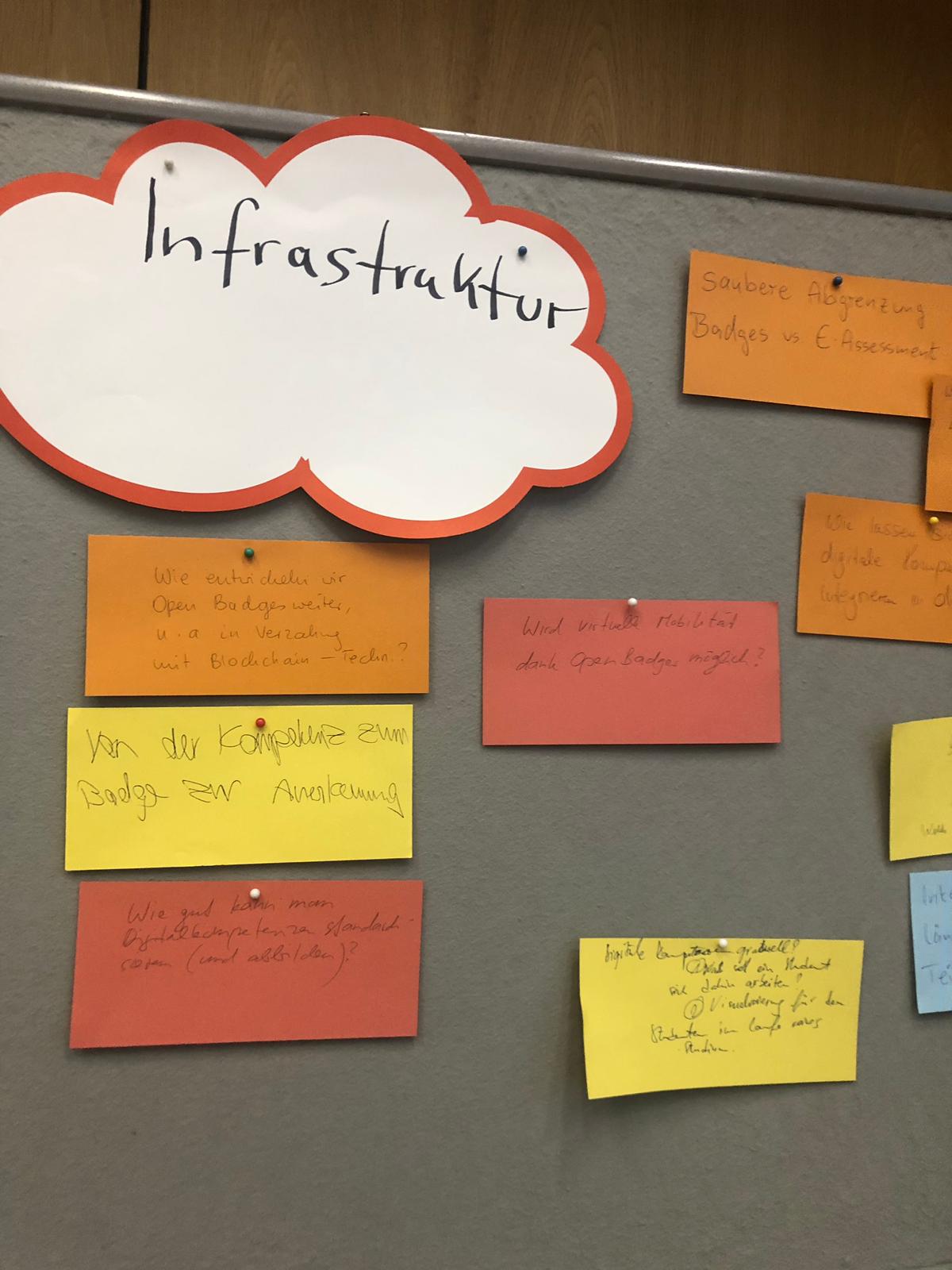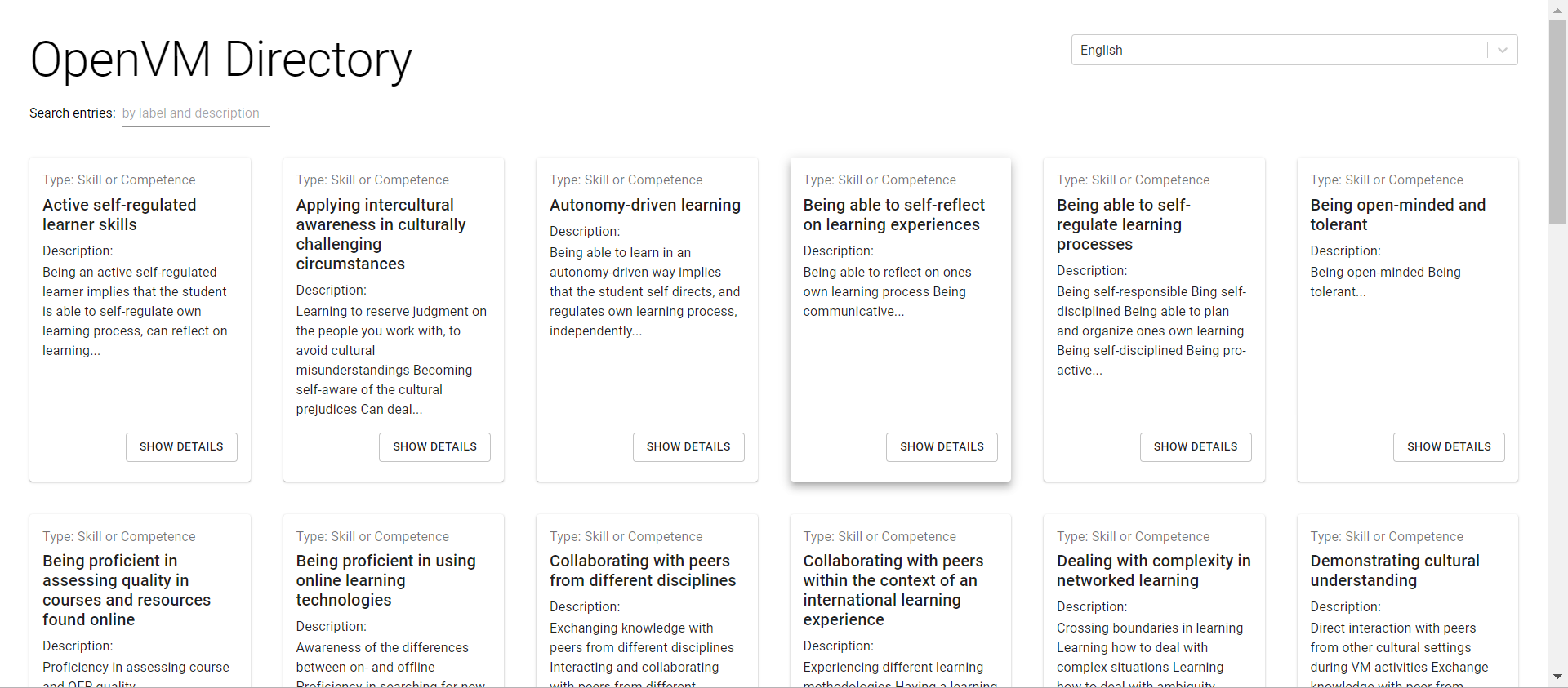About 30 participants worked on September 16 with us on the idea of providing semantic competency information on the web to be used for constructive alignment; especially for alignment of Open Badges. The strong interest lead to discussions around three focus questions (for hours) regarding technical possibilities, application scenarios and legal/political framing conditions.
After the kickoff presentation in the morning Ilona Buchem and Johannes Konert from Beuth University presented the current solution of the competency directory (part of project Output 3). The presented REST-API allows access to semantically structured data (as JSON-LD) of the 33 competency, skill and knowledge definitions which form the competeny framework of Open Virtual Mobility skills (see Output 1). A web-frontend with search capabilities allows easy browsing. It is accessible via http://cd.openvirtualmobility.eu . Main purpose is the search for correct deep-lins (URLs) to the competencies for Open Badge designers on one hand and the embedding of these URLs in the projects’ own Open Badges to allow receivers of the badges to follow these URLs to access a detailed description of the competencies certified with the badges. The presentation included the embedding of these Intellectual Outputs into the whole project ecosystem by visualizing the connection to the learning hub and MOOC (eight fields with three subMOOCs each). Afterwards the lively discussion revealed the strong interest and need for competency definitions beyond tables and PDFs to allow cross-referencing, machine-readability and easy search & re-use.
Additional aspects provided by external experts
For discussion of dissemination, poentials, risks ,applicability and future technological developments, six additional short presentations by experts of the field from all over Germany were given. Focus topics were (among others): parsing and transformation of natural language competency definitions into semantically modeled competency definitions, granularity of modeling competencies, connecting competencies and evidences for assertion, modularized alignment and assessment of digital competencies, peer-based assessment and certification, blockcerts for verification. All these aspects were discussed in the context of improving the field of digital semantic competency provision; and all are relevant in the context of the project Open Virtual Mobility for dissemination, future use and further development.
Lively discussions at three round-tables
In the afternoon participants came together on round tables to develop a state of the art overview and outlook for use of the presented solutions in Open Virtual Mobility and further scenarios. Thus the participants were mixed by expertise (practitioners and technical experts) on all tables. The three table topics were: technical possibilites and restrictions to overcome; suitable application scenarios in education and beyond; and finally solved political and legal conditions and open issues which need regulation or legal support. The discussions were so lively that the timeframe was heavily extended. All discussion rounds took notes on flipcharts and presented their results in the end.
Successfull closing
23 of the 32 workshop participants attended the whole day (10am to 6pm), signed the participant list and agreed not only on the satisfactory structure and content of the workshop, but also committed themselves to be part of a follow-up workshop in 2020.
In conclusion, the workshop was a strong success for the Open Virtual Mobility project concerning the information, conviction and application of semantic competency frameworks within the German community of researchers and practitioners from higher education. The workshop was not formally evaluated, but the fact that 23 of the originally committed 32 participants were highly actively involved during the whole workshop, agreed on the relevance, attractivity and informative content of the workshop and moreover insisted on a continuing event in 2020 corroborated the good fit of the output 3 results with the DELFI community in the field of technology enhanced learning.

